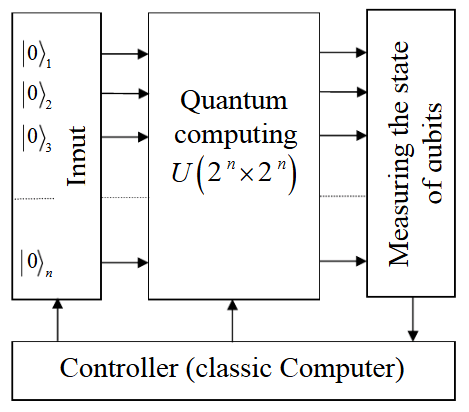What is Quantum Computing?
Quantum computing is a revolutionary field that leverages the principles of quantum mechanics to perform calculations that are beyond the capabilities of classical computers. Unlike classical computers, which rely on bits to represent information as either 0 or 1, quantum computers utilize qubits. Qubits can exist in multiple states simultaneously due to a phenomenon known as superposition, allowing them to process information in a fundamentally different and more powerful way.
Qubits Beyond Classical Bits

Classical Bits:
Represent a binary state (0 or 1).
Qubits:
Represent complex information by holding states as 0, 1, or both simultaneously in superposition, allowing a quantum computer to handle vast amounts of data more effectively.
Advantages and Applications
One of the key advantages of quantum computing lies in its ability to solve certain problems exponentially faster than classical computers. This is achieved through the combined effects of superposition and another quantum phenomenon called entanglement. Entanglement allows qubits to be linked together in such a way that the state of one qubit instantly influences the state of another, regardless of the distance between them. These unique properties enable quantum computers to tackle complex challenges in fields such as drug discovery, materials science, and cryptography.
Quantum computing holds the promise of addressing problems that are currently impractical for classical computers, such as:
- Cryptography: Quantum algorithms can potentially break existing encryption methods, prompting the need for quantum-resistant encryption.
- Optimization: Useful in industries like logistics, finance, and manufacturing for optimizing complex systems and processes.
- Pharmaceuticals: Quantum simulations can accelerate drug discovery and material science by accurately modeling molecular structures.
- Artificial Intelligence: Quantum computing can enhance machine learning algorithms, leading to more rapid and accurate predictions.
While still in its early stages of development, quantum computing holds immense potential to transform various industries and scientific disciplines. Researchers are actively working on building larger and more stable quantum computers, developing new quantum algorithms, and exploring potential applications. Although significant challenges remain, such as maintaining the delicate quantum states of qubits and minimizing errors, the progress made in recent years has been remarkable.
Algorithms and Development
Quantum algorithms leverage quantum phenomena to perform tasks more efficiently than classical algorithms. Key quantum algorithms include:
- Shor’s Algorithm: Efficiently factors large integers, impacting cryptography.
- Grover’s Algorithm: Searches unsorted databases faster than classical methods.
Current State and Future of Quantum Computing
The potential impact of quantum computing is far-reaching. It could revolutionize fields like medicine by enabling the discovery of new drugs and treatments for diseases, accelerate materials science by designing novel materials with enhanced properties, and enhance cybersecurity by developing unbreakable encryption methods. Moreover, quantum computing could unlock new frontiers in artificial intelligence, enabling the development of more powerful and efficient machine learning algorithms.
Today's quantum computers, known as Noisy Intermediate-Scale Quantum (NISQ) computers, operate with limited qubits and are affected by error rates. However, continuous advancements are pushing the boundaries, with tech giants and research institutions leading the charge toward developing stable, scalable quantum systems.
Conclusion
Quantum computing represents the cutting edge of technology, with the potential to revolutionize numerous fields through its unparalleled computational power. While there are hurdles to overcome, the future of quantum computing is promising, inspiring innovations that could reshape our world.